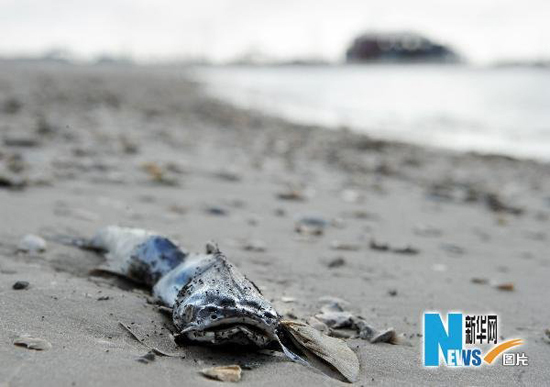Environmental group warns against health risk from U.S. oil spill
The massive oil spill in the Gulf of Mexico may pose risks to public health, the U.S. Natural Resources Defense Council (NRDC) warned on Friday.
|
|
Health-care workers and the general public alike could face risks by inhaling various components of crude oil, such as benzene, toluene and polynuclear aromatic hydrocarbons, all of which may cause cancer, according to the NRDC, an environmental action group.
Crude oil also contains mercury and lead, both of which can be dangerous if inhaled or swallowed, the group said in a statement.
Short-term effects include skin and respiratory woes, while longer-term risks are uncertain, the NRDC said in the statement
Some people along the coast are already reporting headaches, nausea, coughing and throat irritation, according to the NRDC.
There are also potential dangers to the skin. If crude oil isn' t quickly rinsed off the hands and other areas of the body, it can result in redness, swelling or burning or, eventually, even skin and other cancers, the council stated.
"There are significant health risks associated with this oil spill and the risks aren't just to wildlife, they are also to humans," said Gina Solomon, senior scientist with the NRDC.
"The risks include acute health effects from the air pollution from the oil itself. It also includes health effects from burning the oil and it also includes contamination of the food chain which can result in a long-term health concerns."
The immediate worry, said Solomon, is what are called volatile organic compounds, which include chemicals like benzene that can be released in a vapor phase from the oil that's floating in the water.
"These chemicals can cause acute health effects such as headache, nausea, vomiting, cough, dizziness. The chemicals can also cause longer-term effects, including the potential for miscarriage or low birth weight in pregnant women and risk of cancer over the longer term," he said.
"So far," Solomon added, "the levels of these chemicals have been fairly low along the shore lines, so the main concern is for the emergency response workers. But we're worried that as the oil gets closer to shore the levels of the chemicals in the air will rise."
Since the BP offshore oil-rig explosion on April 20, at least 200,000 gallons of oil a day have been pouring into the Gulf of Mexico, according to press reports.
 0
0 







